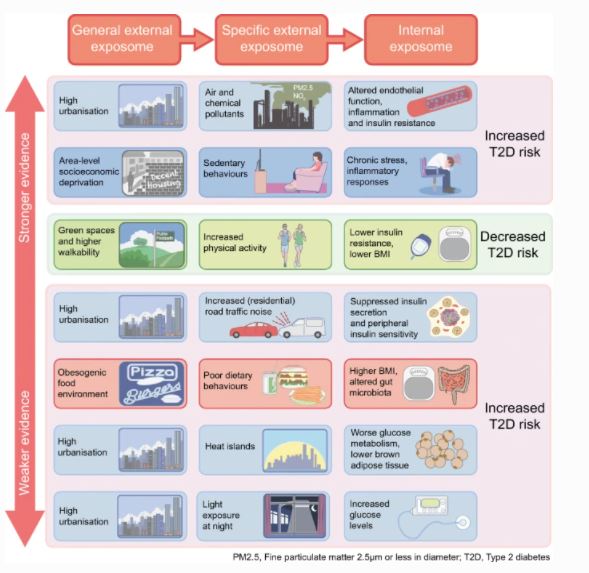Environmental risk factors of type 2 diabetes—an exposome approach – published online 18/11/2021

Joline W. J. Beulens, Maria G. M. Pinho, Taymara C. Abreu, Nicole R. den Braver, Thao M. Lam, Anke Huss, Jelle Vlaanderen, Tabea Sonnenschein, Noreen Z. Siddiqui, Zhendong Yuan, Jules Kerckhoffs, Alexandra Zhernakova, Milla F. Brandao Gois, Roel C. H. Vermeulen
A major part of the burden of type 2 diabetes is attributed to environmental risks and modifiable risk factors such as lifestyle. The environment we live in, and changes to it, can therefore contribute substantially to the prevention of type 2 diabetes at a population level. In this issue, Beulens et al (https://doi.org/10.1007/s00125-021-05618-w) summarise the evidence on the role of the food-, built-, physico-chemical- and social environment in the development of type 2 diabetes. The authors discuss the established associations of air pollution, residential noise and area-level socioeconomic deprivation with an increased risk of type 2 diabetes, and highlight that neighbourhood walkability and green space are associated with a reduced risk of type 2 diabetes. The contribution of the food environment, along with other aspects of the social environment and outdoor temperature are less clear. The authors suggest that these environmental factors affect type 2 diabetes risk mainly through mechanisms that incorporate lifestyle factors, the microbiome, inflammation or chronic stress. The figures from this review are available as a downloadable slideset
All News